This article was co-authored by Pradeep Adatrow, DDS, MS. Dr. Pradeep Adatrow is the only board certified Dentist, Periodontist, and Prosthodontist in the southern United States. With over 15 years of experience, Dr. Adatrow specializes in dental implants, TMJ treatments, periodontal plastic surgery, surgical and non-surgical periodontics, bone regeneration, laser treatments, and soft tissue and gum graft procedures. He received a BS in Epidemiology and Biostatistics from the University of Alabama and earned his Doctor of Dental Surgery (DDS) degree from the University of Tennessee College of Dentistry. Dr. Adatrow then completed a three-year postgraduate program in periodontics and implantology at Indiana University and went on to complete another three-year postdoctoral program in advanced prosthodontics from the University of Tennessee. He also serves as a full-time professor and the Director of Surgical Prosthodontics at the University of Tennessee. Dr. Adatrow received the Dean's Junior Faculty Award and the John Diggs Faculty Award, and he was inducted into the Deans Odontological Society. He is board certified by the American Board of Periodontology and is a Fellow of the prestigious International College of Dentistry – a feat that only 10,000 others worldwide can claim.
There are 13 references cited in this article, which can be found at the bottom of the page.
wikiHow marks an article as reader-approved once it receives enough positive feedback. In this case, 100% of readers who voted found the article helpful, earning it our reader-approved status.
This article has been viewed 92,903 times.
It's normal to feel a little nervous about getting your wisdom teeth out—both the surgery and the recovery can be pretty uncomfortable. Fortunately, there are ways to prepare yourself that will make it easier to tolerate what's to come. By preparing ahead of time and carefully following your doctor's orders after the procedure, you'll have the best chance of a smooth recovery.
Steps
Preparing for Surgery
-
1Stock up on soft foods. After the surgery, you won’t be able to eat anything crunchy or chewy. You’ll also probably not be in the mood to go grocery shopping. Prepare by purchasing plenty of soft food before your surgery. You'll need to have enough to last you for at least 24 hours. However, you'll probably want enough for several days while the swelling goes down. You can begin to introduce other foods when you feel that you can tolerate them. Avoid anything that could get caught in the wound until the wound is healed.[1]
- Puree things like smoothies or soups in a blender. Strain through a filter before consuming to make sure there are no seeds or herbs that will get caught in the wound.
- Stay away from spicy foods. They can irritate the wound.
- Choose plenty of cold foods. They'll feel soothing after the surgery.
- Some foods that are great for after oral surgery are:
- Yogurt (frozen or non-frozen)
- Apple sauce
- Brothy soups (without any chunks)
- Mashed potatoes
- Scrambled eggs
- Hummus
- Congee
- Pudding
- Ice cream
-
2Arrange transportation. You should not plan to drive after the surgery. Plan for a friend to take you home when the surgery is finished. Even if you don’t undergo general anesthesia, you will likely feel too woozy from the surgery to drive.[2]
- If you usually take public transportation, you may not need someone to accompany you. However, you may still want a buddy. They can make sure you’re comfortable on the trip home.
- Don’t plan to walk or bike home yourself. If you live a short distance from the dentist’s office, arrange for a cab or a friend to pick you up.
Advertisement -
3Arrange for time off. You’ll need about 48 hours for the swelling to go down. However, the entire recovery can take several weeks. Plan for at least two days that you’ll be able to stay home from work. Let your boss know that you’re having surgery and you may need to take off a few additional days if your recovery is slower than average.[3]
- Avoid all strenuous physical activity for a few days after the surgery. This may mean arranging for childcare or a pet sitter during your recovery.
- You may need friends or family to take care of chores for a day or two. Consider whether you’ll need someone to do things like take the garbage out, water the garden, or shovel snow from your sidewalk.
-
4Purchase gauze and pain relievers. Both of these things can be purchased at your local pharmacy. Your dentist may give you a supply of gauze and a prescription for pain relievers. However, it’s always good to be prepared with your own.[4]
- Buy sterilized gauze pads that are safe to put in your mouth. Ask your pharmacist for a recommendation.
- Choose a pain reliever that doesn’t contain caffeine. Caffeine should be avoided while recovering from surgery.[5]
- You can also keep teabags on hand. They can help control bleeding. Soak one in warm water and then squeeze it dry. Hold it on the wound for 20-30 minutes.[6]
-
5Prepare for down time. You may be resting for a while after the surgery. Create a cozy space in your home where you'll be able to rest comfortably. You should have plenty of pillows and blankets, as well as entertainment.
- Take out books from the library, or download some books on tape to listen to while you recover.
- Choose movies or TV shows that you'll want to watch while you're resting. Have them ready to go so you won't have to worry after the surgery.
-
6Ask friends to come over. Recovering at home can feel boring and even lonely sometimes. Before the surgery, line up visiting times with friends and family. Let them know you'll want visitors, and schedule times when they can come by.
- Let your friends know you may be a little bit out of it, but that you'll still be grateful for their company.
- Don't plan to do too much with your visitors. Simply watching a movie or listening to music together are relaxing ways to enjoy each others company.
Tolerating the Surgery
-
1Discuss the plan with your dentist. Surgery can seem scary if you don’t know what to expect. Your dentist should be happy to explain the process to you before they begin. Ask any questions you have; this may set your mind at ease.[7]
- Make sure you don’t have any infections currently. If you do, tell your dentist about them. The surgery may need to be rescheduled.
-
2Agree on the type of anesthetic. Most wisdom tooth removals only require local anaesthetic. This means that you’ll be awake during the surgery. In some cases, your dentist may give you sedation anaesthesia or general anaesthesia.[8]
- Sedation anaesthesia suppresses your consciousness. It’s delivered intravenously and will leave you with a limited memory of the surgery.
- General anaesthesia may be inhaled through the nose or delivered intravenously. General anaesthesia will put you completely asleep and you’ll be unconscious throughout the procedure.
- All anaesthesia carries a small degree of risk. However, when used properly, anaesthesia is considered extremely safe.
-
3Try to relax. You may experience some pressure or discomfort during the surgery, but you should not feel pain. If you do feel pain during the surgery, it means that the anaesthetic is not working. Let your dentist know immediately.[9]
- If your dentist has given you only a local anaesthetic, close your eyes during the procedure. This may take your mind off the procedure somewhat.
Recovering from Surgery
-
1Don't eat until the anesthesia wears off. You probably won't be feeling super hungry right after the surgery, which is a good thing. Avoid eating anything while your mouth is still numb—you could accidentally bite your lips, cheeks, or tongue, causing yourself harm.[10]
-
2Rest without lying flat. For the first 48-72 hours after surgery, rest as much as possible, and keep your head somewhat elevated to help reduce swelling. If you choose to lie down, use a few pillows to prop your head up.[11]
- Keeping your head elevated may make sleeping less comfortable. However, it helps the bleeding stop.[12]
- If it’s hard to sleep with your head elevated, do something else to help you relax. You can watch TV, listen to the radio, or read a book or magazine.
-
3Refrain from brushing your teeth for 24 hours. You don’t want to irritate the wound or spread bacteria throughout your mouth. After 24 hours, you can brush your teeth gently, avoiding the surgical wound.[13]
-
4Rinse with saltwater. After 24 hours, you should begin to rinse your mouth regularly with saltwater. Do this every two hours, and after you eat. Keep this up for a week as the wound heals. [14]
- You can make saltwater by dissolving 1tsp of salt in 1 8oz glass of warm water.
-
5Drink lots of water. Avoid sugary drinks and caffeine while recovering. Within the first 24 hours, avoid carbonated beverages and hot beverages as well.[15]
- Never drink through a straw after oral surgery. This can dislodge a blood clot from the socket.
-
6Avoid smoking for 72 hours. This can be difficult if you’re a regular smoker. Tobacco use can lengthen the recovery process. It also increases the risk of complications from the surgery. [16]
- If you chew tobacco, avoid doing so for at least a week after surgery.
- You may want to use a nicotine patch to help curb cravings if necessary.
- The sucking motion can dislodge any blood clots that have formed, leading to a condition called dry socket. This is why your doctor will tell you to avoid using a straw, as well.[17]
-
7Take pain relievers. Your doctor may have prescribed a specific pain reliever. If they did, take that medication as recommended. If you didn’t receive a prescription, take over-the-counter pain relievers as needed.[18]
- Ask your dentist which over-the-counter pain relievers they recommend.
-
8Ice the area for at least the first 2 days. Apply ice packs to the sides of your face, 20 minutes on, then 20 minutes off. This will help reduce swelling in the area.[19]
- After 24 hours, use damp heat on your cheek, such as a warm washcloth. Dry heat (such as heating pads) can dehydrate the area, which is not good for healing. Always try to use a form of heat that won’t dehydrate you.[20]
Expert Q&A
Did you know you can get expert answers for this article?
Unlock expert answers by supporting wikiHow
-
QuestionHow can I relieve pain after mouth surgery?
 Pradeep Adatrow, DDS, MSDr. Pradeep Adatrow is the only board certified Dentist, Periodontist, and Prosthodontist in the southern United States. With over 15 years of experience, Dr. Adatrow specializes in dental implants, TMJ treatments, periodontal plastic surgery, surgical and non-surgical periodontics, bone regeneration, laser treatments, and soft tissue and gum graft procedures. He received a BS in Epidemiology and Biostatistics from the University of Alabama and earned his Doctor of Dental Surgery (DDS) degree from the University of Tennessee College of Dentistry. Dr. Adatrow then completed a three-year postgraduate program in periodontics and implantology at Indiana University and went on to complete another three-year postdoctoral program in advanced prosthodontics from the University of Tennessee. He also serves as a full-time professor and the Director of Surgical Prosthodontics at the University of Tennessee. Dr. Adatrow received the Dean's Junior Faculty Award and the John Diggs Faculty Award, and he was inducted into the Deans Odontological Society. He is board certified by the American Board of Periodontology and is a Fellow of the prestigious International College of Dentistry – a feat that only 10,000 others worldwide can claim.
Pradeep Adatrow, DDS, MSDr. Pradeep Adatrow is the only board certified Dentist, Periodontist, and Prosthodontist in the southern United States. With over 15 years of experience, Dr. Adatrow specializes in dental implants, TMJ treatments, periodontal plastic surgery, surgical and non-surgical periodontics, bone regeneration, laser treatments, and soft tissue and gum graft procedures. He received a BS in Epidemiology and Biostatistics from the University of Alabama and earned his Doctor of Dental Surgery (DDS) degree from the University of Tennessee College of Dentistry. Dr. Adatrow then completed a three-year postgraduate program in periodontics and implantology at Indiana University and went on to complete another three-year postdoctoral program in advanced prosthodontics from the University of Tennessee. He also serves as a full-time professor and the Director of Surgical Prosthodontics at the University of Tennessee. Dr. Adatrow received the Dean's Junior Faculty Award and the John Diggs Faculty Award, and he was inducted into the Deans Odontological Society. He is board certified by the American Board of Periodontology and is a Fellow of the prestigious International College of Dentistry – a feat that only 10,000 others worldwide can claim.
Board Certified Dentist & Oral Surgeon
-
QuestionDo you have any tips for recovering from a wisdom teeth extraction?
 Pradeep Adatrow, DDS, MSDr. Pradeep Adatrow is the only board certified Dentist, Periodontist, and Prosthodontist in the southern United States. With over 15 years of experience, Dr. Adatrow specializes in dental implants, TMJ treatments, periodontal plastic surgery, surgical and non-surgical periodontics, bone regeneration, laser treatments, and soft tissue and gum graft procedures. He received a BS in Epidemiology and Biostatistics from the University of Alabama and earned his Doctor of Dental Surgery (DDS) degree from the University of Tennessee College of Dentistry. Dr. Adatrow then completed a three-year postgraduate program in periodontics and implantology at Indiana University and went on to complete another three-year postdoctoral program in advanced prosthodontics from the University of Tennessee. He also serves as a full-time professor and the Director of Surgical Prosthodontics at the University of Tennessee. Dr. Adatrow received the Dean's Junior Faculty Award and the John Diggs Faculty Award, and he was inducted into the Deans Odontological Society. He is board certified by the American Board of Periodontology and is a Fellow of the prestigious International College of Dentistry – a feat that only 10,000 others worldwide can claim.
Pradeep Adatrow, DDS, MSDr. Pradeep Adatrow is the only board certified Dentist, Periodontist, and Prosthodontist in the southern United States. With over 15 years of experience, Dr. Adatrow specializes in dental implants, TMJ treatments, periodontal plastic surgery, surgical and non-surgical periodontics, bone regeneration, laser treatments, and soft tissue and gum graft procedures. He received a BS in Epidemiology and Biostatistics from the University of Alabama and earned his Doctor of Dental Surgery (DDS) degree from the University of Tennessee College of Dentistry. Dr. Adatrow then completed a three-year postgraduate program in periodontics and implantology at Indiana University and went on to complete another three-year postdoctoral program in advanced prosthodontics from the University of Tennessee. He also serves as a full-time professor and the Director of Surgical Prosthodontics at the University of Tennessee. Dr. Adatrow received the Dean's Junior Faculty Award and the John Diggs Faculty Award, and he was inducted into the Deans Odontological Society. He is board certified by the American Board of Periodontology and is a Fellow of the prestigious International College of Dentistry – a feat that only 10,000 others worldwide can claim.
Board Certified Dentist & Oral Surgeon Rest for 48-72 hours after surgery and sleep in a reclined position to reduce swelling. For the first 2 days, apply ice packs to the sides of your face—20 minutes on, 20 minutes off. For the first few days, stick to soft foods, but don't eat until the anesthesia has worn off, or you could bite your lips, cheeks, or tongue. You will have some discomfort when the anesthesia is gone, so take your prescription medications to reduce pain.
Rest for 48-72 hours after surgery and sleep in a reclined position to reduce swelling. For the first 2 days, apply ice packs to the sides of your face—20 minutes on, 20 minutes off. For the first few days, stick to soft foods, but don't eat until the anesthesia has worn off, or you could bite your lips, cheeks, or tongue. You will have some discomfort when the anesthesia is gone, so take your prescription medications to reduce pain.
Warnings
- All surgeries come with some risks. Discuss this with your dentist or oral surgeon before you schedule your surgery.⧼thumbs_response⧽
- You will experience pain and swelling for several days after the procedure. If it has been more than 3 or 4 days without any relief, contact your surgeon's office. You may be experiencing a complication from surgery.⧼thumbs_response⧽
References
- ↑ https://dental.washington.edu/wp-content/media/oral-surgery/Afteryouroralsurgery.pdf
- ↑ https://www.nshealth.ca/sites/nshealth.ca/files/patientinformation/0646.pdf
- ↑ https://www.rcseng.ac.uk/-/media/files/rcs/library-and-publications/non-journal-publications/wisdom-teeth-extraction.pdf
- ↑ https://dental.washington.edu/wp-content/media/oral-surgery/Afteryouroralsurgery.pdf
- ↑ https://www.scielo.br/j/bdj/a/DC7chTwqNjKxMwmJDWXWvRq/?lang=en
- ↑ https://www.bmj.com/content/357/bmj.j1217
- ↑ https://www.ismp-canada.org/download/OpioidStewardship/WisdomTeethRemoval-EN.pdf
- ↑ https://www.mouthhealthy.org/~/media/ADA/Education%20and%20Careers/Files/anesthesia_use_guidelines.pdf
- ↑ https://www.ncbi.nlm.nih.gov/pmc/articles/PMC4790493/
- ↑ Pradeep Adatrow, DDS, MS. Board Certified Dentist & Oral Surgeon. Expert Interview. 5 November 2020.
- ↑ Pradeep Adatrow, DDS, MS. Board Certified Dentist & Oral Surgeon. Expert Interview. 5 November 2020.
- ↑ https://askthedentist.com/faster-wisdom-tooth-surgery-recovery/
- ↑ https://www.nshealth.ca/sites/nshealth.ca/files/patientinformation/0646.pdf
- ↑ https://www.england.nhs.uk/mids-east/wp-content/uploads/sites/7/2017/07/pt-info-leaflet-extractions.pdf
- ↑ http://sandstoneos.com/wp-content/uploads/2015/08/Insructions-Wisdom-Tooth-Extraction.pdf
- ↑ https://www.england.nhs.uk/mids-east/wp-content/uploads/sites/7/2017/07/pt-info-leaflet-extractions.pdf
- ↑ Pradeep Adatrow, DDS, MS. Board Certified Dentist & Oral Surgeon. Expert Interview. 5 November 2020.
- ↑ https://www.ismp-canada.org/download/OpioidStewardship/WisdomTeethRemoval-EN.pdf
- ↑ Pradeep Adatrow, DDS, MS. Board Certified Dentist & Oral Surgeon. Expert Interview. 5 November 2020.
- ↑ https://c3-preview.prosites.com/270081/wy/docs/After-Wisdom-Teeth-Extractions.pdf



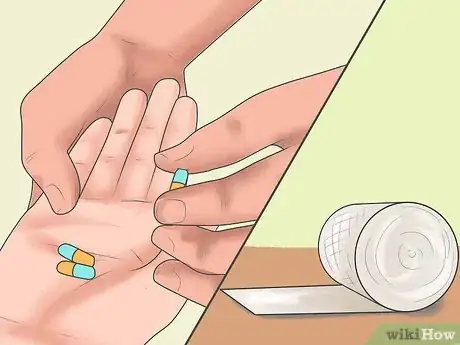



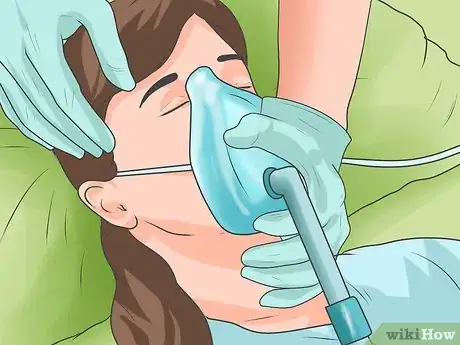



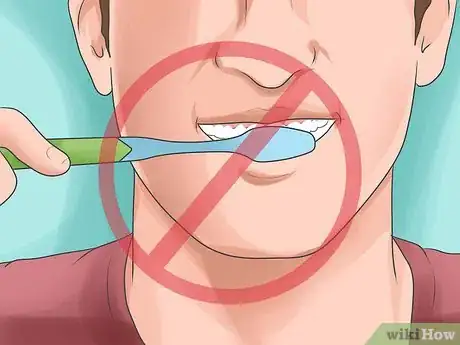
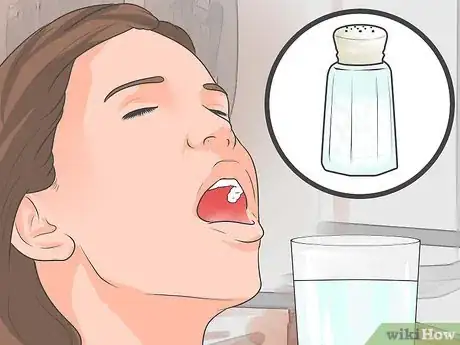

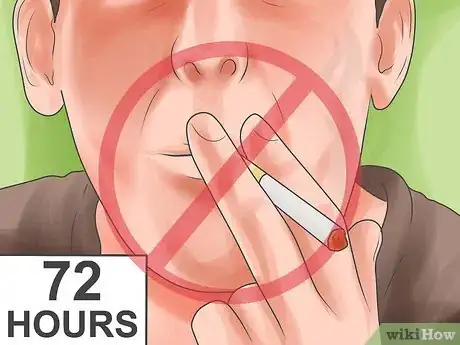
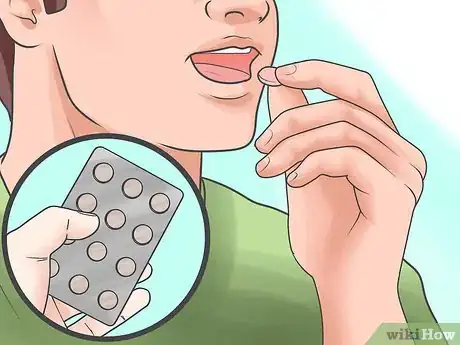


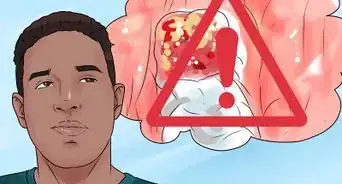

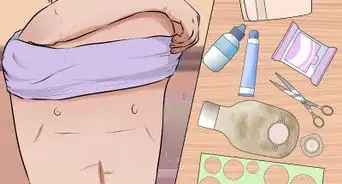
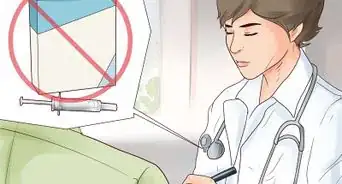
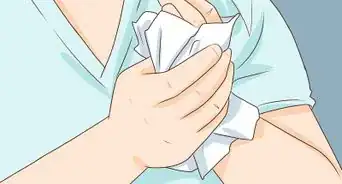

















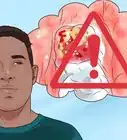





































Medical Disclaimer
The content of this article is not intended to be a substitute for professional medical advice, examination, diagnosis, or treatment. You should always contact your doctor or other qualified healthcare professional before starting, changing, or stopping any kind of health treatment.
Read More...